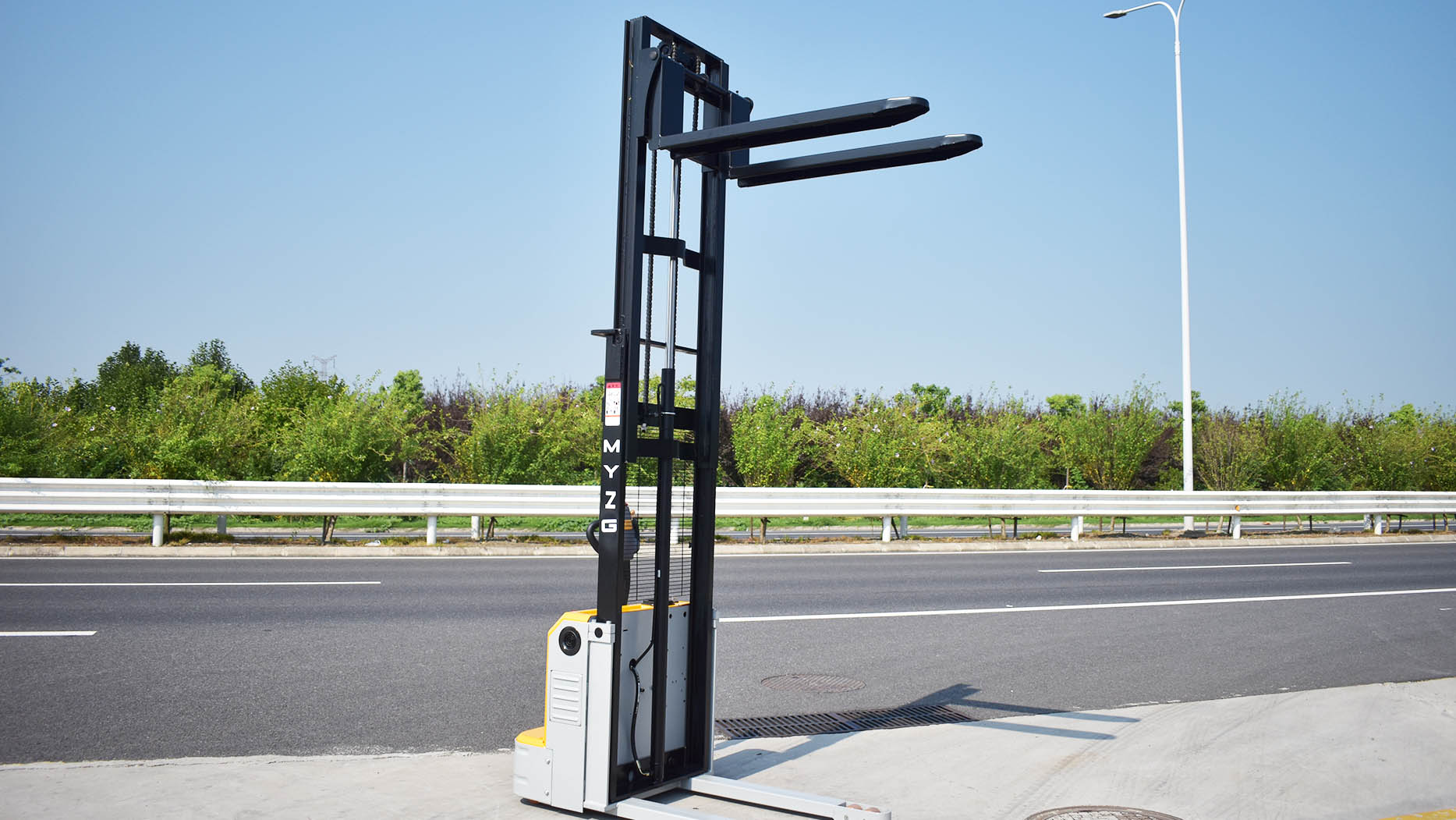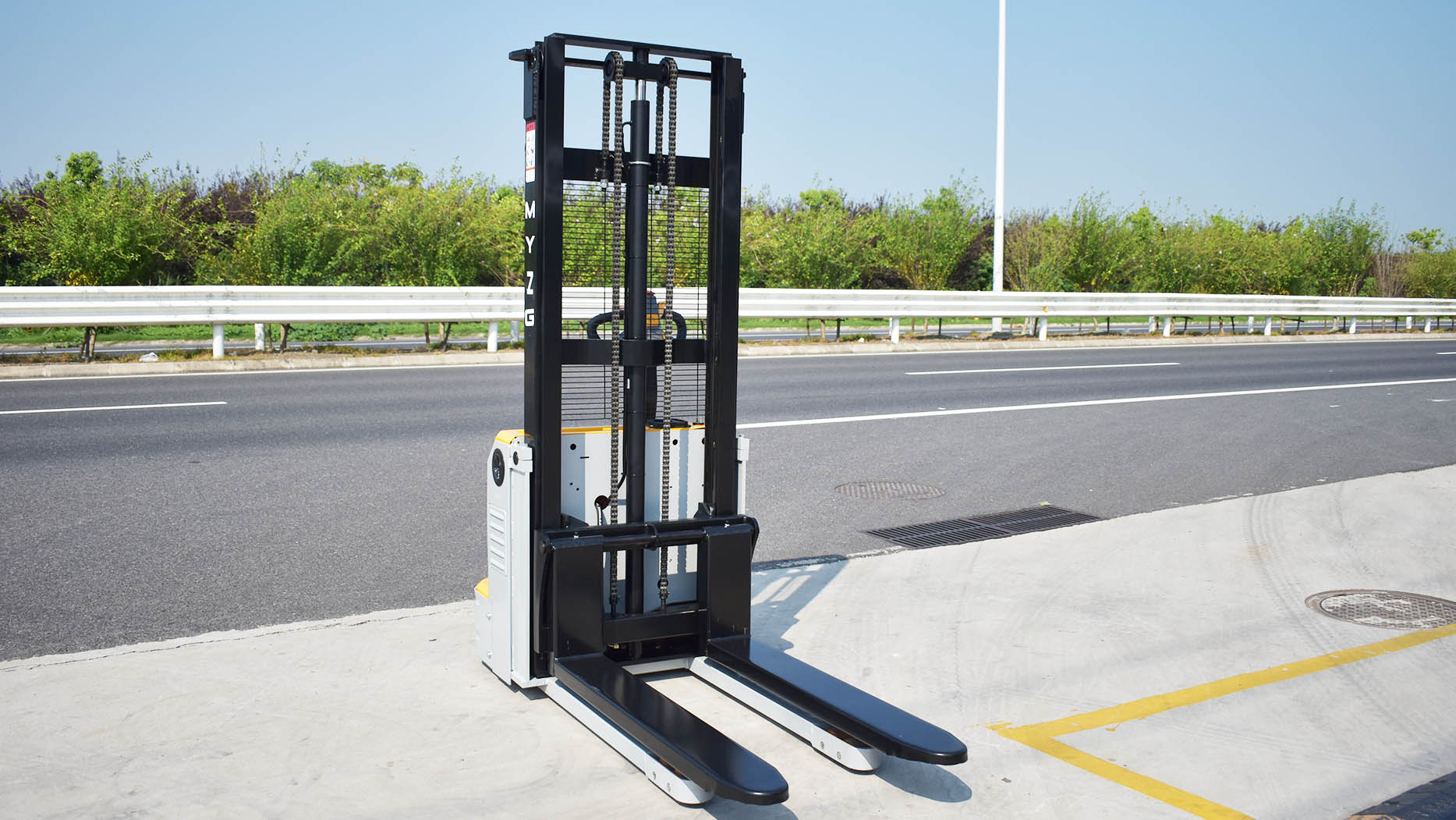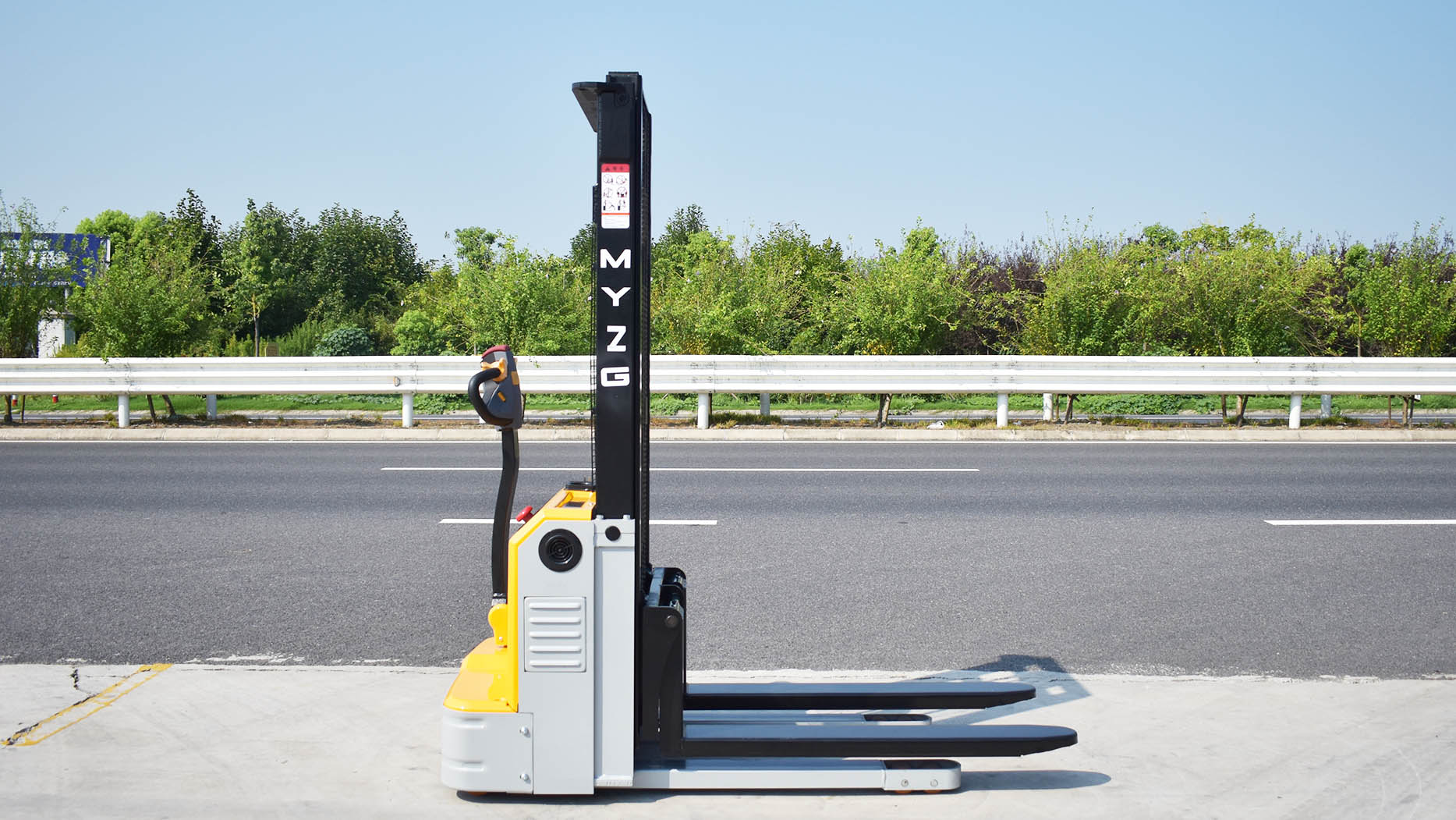While the image of a forklift operator might conjure a general picture of warehouse work, the reality is that this profession encompasses a diverse range of specializations, industries, and skill levels, leading to significant variations in compensation. Pinpointing a single "highest paid" forklift operator is akin to finding the highest-paid driver – the specialization and the demands of the role are paramount. This technical article will delve into the various factors that contribute to elevated earnings for forklift operators, exploring specific roles, industries, and skills that command premium salaries.
It's crucial to understand that the average forklift operator salary, while providing a baseline, doesn't reflect the upper echelons of earning potential. According to recent data, the average hourly pay for a forklift operator in the United States typically ranges from $17 to $20, translating to an annual salary of approximately $35,000 to $42,000. However, certain specialized roles and circumstances can push these figures considerably higher.
Key Factors Elevating Forklift Operator Salaries:
Several key factors contribute to a forklift operator's earning potential, with the combination of these often leading to the highest salaries:
Specialized Equipment Operation: Operating complex or high-value machinery often commands higher pay due to the increased skill and responsibility involved. Examples include:
Rough Terrain Forklifts: Operating large, powerful forklifts designed for uneven outdoor terrain in construction, mining, and forestry requires specialized skills and knowledge of safety procedures in challenging environments.
Telescopic Handlers (Telehandlers/Lull Forklifts): These versatile machines with extendable booms require precision and expertise to lift and place loads at significant heights and reaches, often in tight spaces.
Very Narrow Aisle (VNA) Forklifts: Navigating and operating these specialized forklifts in extremely narrow warehouse aisles at significant heights demands exceptional skill and focus. This often involves operating models with complex guidance systems or integrated warehouse management software.
Side Loaders: Used for handling long and bulky items like lumber or steel, side loaders require unique operating techniques and a strong understanding of load stability.
Container Handlers/Reach Stackers (e.g., MYCQDA reach stacker): Operating massive machines designed for stacking and moving intermodal shipping containers in ports and rail yards is among the most highly specialized and compensated forms of forklift operation. These machines require immense precision, awareness of large-scale logistics, and adherence to strict safety protocols around heavy and often unstable loads. The scale of operation and potential for high-value cargo adds to the complexity and demand for highly skilled operators.

High-Capacity Electric Stackers (e.g., MYCDD-D Standard Standing Electric Stacker): While "stackers" might seem less complex than traditional sit-down forklifts, operators of advanced, high-capacity, or specialized electric stackers that operate in high-density, automated warehouses often earn more. These roles demand precision in tight spaces, interaction with automated systems, and a focus on maximizing vertical storage efficiency. The "standing" aspect of the MYCDD-D indicates a design often chosen for quick on/off access and maneuverability in specific warehouse layouts.
Hazardous Materials Handling: Operators certified and experienced in handling hazardous materials (HAZMAT) often receive higher compensation due to the increased risk and regulatory requirements associated with their work. This requires specialized training, certifications (like those related to OSHA and specific HAZMAT endorsements), and strict adherence to safety protocols. Industries such as chemical manufacturing, waste management, and specialized logistics often employ these higher-paid operators.
High-Demand Industries: Certain industries experiencing significant growth or facing labor shortages may offer premium wages to attract and retain skilled forklift operators. Examples can include:
Port and Intermodal Operations: As mentioned with container handlers, the fast-paced, high-volume environment of seaports and intermodal rail yards requires highly efficient and skilled operators for loading, unloading, and stacking containers. These roles are critical to global supply chains and often come with robust compensation packages, frequently through union agreements.
E-commerce and Logistics Hubs: The rapid expansion of online retail has created immense pressure on warehousing and distribution centers, increasing the demand for efficient and skilled forklift operators, particularly those proficient with high-reach and automated systems.
Construction and Infrastructure Projects: Large-scale construction and infrastructure projects often require experienced operators for material handling in demanding conditions, including the use of rough terrain and telescopic forklifts.
Specialized Manufacturing: Industries with complex supply chains or high-value goods (e.g., aerospace, automotive, electronics) may prioritize experienced operators and offer competitive wages to ensure precise and damage-free material flow.
Geographic Location and Cost of Living: As with most professions, geographic location plays a significant role in determining salary. Operators working in areas with a higher cost of living, strong union presence, or high demand for skilled labor often earn more than those in areas with lower living costs or a saturated job market. Major metropolitan areas, especially those with significant port activity (e.g., Los Angeles, New York, Seattle, Houston), or regions with robust industrial growth, may see higher average and top-end salaries.
 Experience and Certifications: While a basic forklift operator certification is a fundamental requirement, extensive experience, a proven safety record, and additional specialized certifications can significantly boost earning potential. Employers often value operators with years of experience who can demonstrate efficiency, problem-solving skills, and a commitment to safety. Certifications beyond the basic OSHA requirements, such as those for specific equipment types (e.g., large-capacity telehandler certification) or advanced operating techniques (e.g., precision load placement at height), can also command higher pay.
Experience and Certifications: While a basic forklift operator certification is a fundamental requirement, extensive experience, a proven safety record, and additional specialized certifications can significantly boost earning potential. Employers often value operators with years of experience who can demonstrate efficiency, problem-solving skills, and a commitment to safety. Certifications beyond the basic OSHA requirements, such as those for specific equipment types (e.g., large-capacity telehandler certification) or advanced operating techniques (e.g., precision load placement at height), can also command higher pay.
Shift Work and Overtime: Operators willing to work night shifts, weekends, or overtime hours often receive shift differentials and overtime pay, which can substantially increase their annual earnings. Industries with 24/7 operations, such as port logistics, large-scale manufacturing, and major distribution centers, heavily rely on shift work.
Union Membership: In some regions and industries, unionized positions for equipment operators, including specialized forklift operators, may offer significantly higher wages, more comprehensive benefits packages (health insurance, retirement plans), and better overtime rates compared to non-unionized environments. Longshoremen unions, for example, are known for securing very competitive compensation for their members.
Examples of Potentially High-Paying Forklift Operator Roles and Estimated Earnings:
Considering the factors above, specific roles within the forklift operation field are more likely to command higher salaries. While precise figures can fluctuate, here's an estimation for top earners:
Longshoreman (Operating Container Handlers like MYCQDA reach stacker or similar):
Role Description: These operators work in highly demanding port environments, moving massive shipping containers on and off ships, stacking them in yards, and loading them onto trucks or trains. They operate large, complex machinery like MYCQDA reach stackers or even larger gantry cranes. The work is physically demanding, often involves shift work, and requires extreme precision due to the immense weight and value of the cargo.
Estimated Annual Earnings: Highly experienced and unionized longshoremen who operate such specialized equipment frequently earn $70,000 to over $100,000 annually, especially when factoring in overtime and comprehensive benefits. Some top earners can reach even higher figures in major ports.
HAZMAT Certified Operators (Specialized Industries):
Role Description: These individuals operate forklifts to handle, store, and move hazardous chemicals, waste, or other regulated materials. Their work requires adherence to strict safety protocols, specialized training, and potentially advanced certifications to prevent spills, contamination, and accidents.
Estimated Annual Earnings: Depending on the industry (e.g., chemical manufacturing, nuclear facilities, specialized waste management) and location, experienced HAZMAT certified operators can earn $55,000 to $80,000+ annually.
VNA (Very Narrow Aisle) Operators (High-Bay Automated Warehouses):
Role Description: Operating specialized VNA forklifts (which can include models like the MYCDD-D Standard Standing Electric Stacker in certain high-density applications where vertical reach is paramount, or dedicated VNA turrets) in highly automated, high-bay warehouses. Precision is key as aisles are extremely narrow, and loads are often lifted to considerable heights. Operators frequently interface with warehouse management systems.
Estimated Annual Earnings: Skilled VNA operators in advanced logistics and e-commerce facilities can earn $45,000 to $65,000 annually, with opportunities for higher pay based on shift work and specific company needs.
 Heavy Construction/Mining Rough Terrain Forklift Operators:
Heavy Construction/Mining Rough Terrain Forklift Operators:
Role Description: Operating large rough terrain forklifts and telescopic handlers on demanding construction sites, quarries, or mining operations. The work involves moving heavy, often irregularly shaped materials over uneven and sometimes hazardous ground.
Estimated Annual Earnings: Depending on the scale of the project, location, and union status, experienced rough terrain operators can earn $48,000 to $75,000+ annually.
The Path to Top Earnings:
For a forklift operator aiming for the highest pay, the path typically involves:
Specialization: Focusing on operating advanced, complex, or high-capacity equipment (like the MYCQDA reach stacker for containers or specialized VNA models like the MYCDD-D Standard Standing Electric Stacker for high-density storage).
Certification: Acquiring all necessary basic certifications (e.g., OSHA-compliant) and then pursuing specialized certifications for the specific high-demand equipment they wish to operate. HAZMAT training is a significant advantage.
Experience: Accumulating significant years of experience (often 5+ years) with a proven track record of safety, efficiency, and reliability.
Strategic Location: Seeking employment in geographic areas with high demand for skilled operators and a higher cost of living, or where strong unions are prevalent.
Industry Focus: Targeting industries that inherently involve higher risks, larger scale operations, or more valuable materials, such as ports, chemical plants, or large-scale infrastructure projects.
Flexibility: Being willing to work less desirable shifts (nights, weekends) and accepting overtime hours.
Conclusion: Specialization and Demand Drive Top Earnings
The notion of a single "highest paid forklift operator" is less about a specific job title and more about a confluence of factors. Operators who acquire specialized skills in operating complex equipment (such as MYCQDA reach stackers in ports or advanced MYCDD-D Standard Standing Electric Stackers in high-density warehouses), handling hazardous materials, or working in high-demand industries or challenging environments are more likely to command premium salaries. Geographic location, extensive experience, advanced certifications, and union membership also play significant roles in elevating earning potential.
While the average forklift operator provides a vital service in countless industries, the apex of this profession lies in the hands of those who have honed specialized skills and taken on the responsibilities demanded by complex and often high-stakes environments. These highly compensated professionals are a testament to the fact that even within seemingly common professions, specialization and expertise can lead to significant financial rewards. The "highest paid" forklift operator is likely not just moving pallets; they are a highly skilled professional navigating complex machinery and demanding environments with precision and expertise, crucial to the smooth functioning of global supply chains and critical industries.
Post time:May.21.2025
